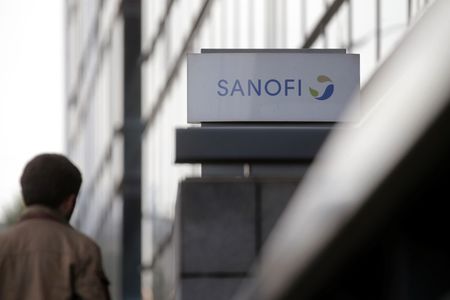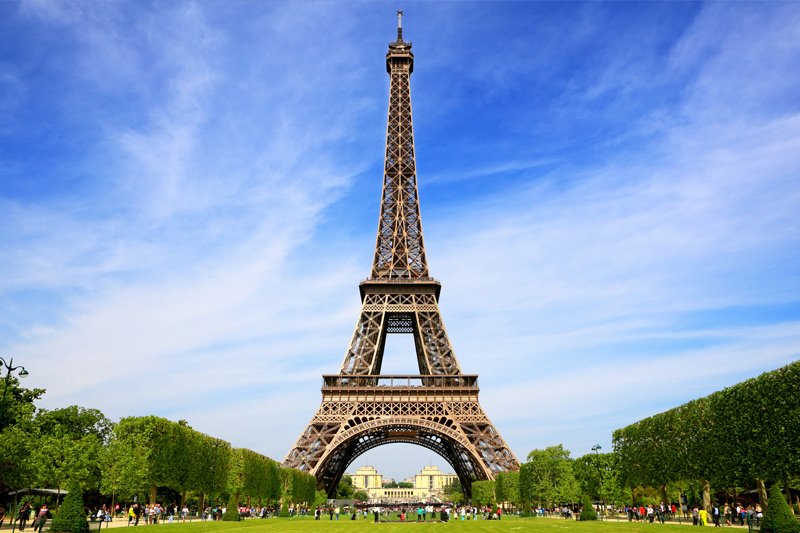By Andrew Callus
PARIS (Reuters) - Events at Sanofi (PA:SASY) this week cost a high-flying German-Canadian boss his job and global investors billions. They are also a reminder that corporate France carries the national interest in its DNA, and neglects its family duties at its peril.
Chris Viehbacher, sacked by a unanimous vote of his board on Wednesday, made the group into a multinational, a top five global drugmaker with a footprint in over 100 countries. Although Paris-listed, the firm has less than a quarter of its employees in France, while a majority of its shareholders are to be found outside the country.
Viehbacher's chairman said he was fired for poor co-operation and a disagreement over style.
However, comments from the ex-CEO himself and sources close to the board made clear that his decision to move to Boston from Paris in June, and to consider cutting jobs in France without sharing the ideas at the top of the company, rankled with board members from the French establishment.
Earlier in 2014, fearing a foreign bid for engineering group Alstom's (PA:ALSO) power turbine business would move jobs and decision making abroad, the French government fought for and won a change of terms, strengthening along the way a law to discourage foreign bids in key sectors.
Patrick Kron, the Alstom CEO who also happens to be on Sanofi's board, received a public dressing down for failing to tell the government what he was up to.
This year the French state also insisted on an equal shareholding with China in the state-sponsored rescue of carmaker Peugeot (PA:PEUP), and steered new management into place at the top of the nation's power industry.
"These multinational companies are fundamental. They are a trump card for France - a trump card we capitalise on," Pierre Gattaz, head of the French employers' group MEDEF, told Reuters in September. "I see them as the aircraft carriers for the return of growth in France."
Across the boardroom table in the meeting that sealed Viehbacher's fate sat chairman Serge Weinberg, who followed the classic steps up the French corporate ladder, from elite schooling to the boardroom, via a senior role serving a government minister.
Pierre-Henri Leroy, who runs the French independent investor voting consultancy Proxinvest, thinks there must be other reasons behind Viehbacher's abrupt departure, but he said the move to Boston and his handling of the French jobs issue would have gone down badly with Weinberg.
"Weinberg rolls with French political interests," said Leroy. "He was made by politics and he is still involved."
STRENGTH IN UNITY
Delivering prosperity, prestige and jobs were the raison d'etre of "France Inc" long before the country descended into its current economic troubles with unemployment above 10 percent.
Many of the CAC-40 index of French blue chip stocks owe their might, at least in part, to state intervention of one sort or another. The drugmaker is no exception, although the French state does not own a large stake. Its current scale is the result of a state-sponsored merger a decade ago that shut out a foreign bidder.
GDF Suez (PA:GSZ) - which along with a handful of French peers dominates the list of top global power utilities, is another example from the 2000s. Corporate and legislative France closed ranks to thwart the acquisition ambitions of Italian power group Enel (MI:ENEI).
French firms are less likely than their European peers to be bought by foreigners, and the French do more than their share of buying abroad, especially of big companies.
Only 37 percent of acquisitions of French companies have involved foreign acquirers since 2000, Thomson Reuters data shows. That compares with 55 percent for Britain and 59 percent in Germany over the same period.
Since 1980, French companies have acquired $363 billion in U.S. assets, while American firms spent just $164 billion buying assets in France. The French haul was bloated by a handful of bumper U.S. deals in recent years, including Alcatel's purchase of Lucent, and Sanofi's takeover of Genzyme.
FLYING HIGH
Building big companies has been a central part of France's strategy to grow its economy since World War Two. The Caravelle, the world's first short-medium range jet airliner developed with state money and at the express wishes of the government, first took to the air in the 1950s.
It went on to grace commercial fleets around the world, while its builders Sud Aviation developed the supersonic Concorde and morphed through domestic mergers and European joint ventures into Franco-German champion Airbus (PA:AIR).
In the energy and water utilities sectors, GDF Suez, EDF (PA:EDF) and Veolia (PA:VIE) stand out, as do L'Oreal (PA:OREP) and LVMH (PA:LVMH) in luxury goods, Total (PA:TOTF) in oil, and Vinci (PA:SGEF), Saint Gobain (PA:SGOB) and Lafarge (PA:LAFP) in construction and building materials. All figure in the top four of their respective industries globally.
Interventionism also crosses political boundaries in France.
The high profile intervention of former Socialist economy minister Arnaud Montebourg in the Alstom saga this year came a decade after Nicolas Sarkozy - then the economy minister in a government of the right - sought to do much the same thing.
STORM CLOUDS?
But lately, big French firms have become targets of the same postwar globalisation that France Inc rode so effectively, and a weakened, indebted government has neither the resources nor the economic growth with which to act.
In one of this year's big takeover deals, Lafarge is about to be swallowed up by larger Swiss group cement group Holcim (VX:HOLN). And for all the guarantees secured, Alstom's power division will soon be owned by General Electric (N:GE).
Abroad meanwhile, despite cheerleading from Montebourg, telecoms group Iliad's takeover crusade in the United States has come to nothing.
The failure of government efforts to avert a pilots' strike at Air France (PA:AIRF) last month was a reminder of the big dangers globalisation poses for the French model. Shareholder-owned companies with high labour costs face fierce competition from two sorts of rivals: those that can pay their staff less well, and those whose governments aim to do what France itself did by building an industrialised economy through aggressive investment regardless of profitability.
With its 31 companies in the Global Fortune 500 this year, France remains ahead of Britain and Germany, both on 28, but down from 40 in 2008, when Viehbacher took the helm at Sanofi. China now has 95 companies in the list, up from just 29.

"In a globalised environment where production conditions that are more attractive and markets more dynamic than those to be found in France, how can we stop our big companies from turning their back on their origins?" wrote Frederic Monlouis-Felicite in a June policy paper for the Institut de l'Entreprise, a think tank funded by big business.
(Additional reporting by Jean-Baptiste Vey and Marc Joanny)
